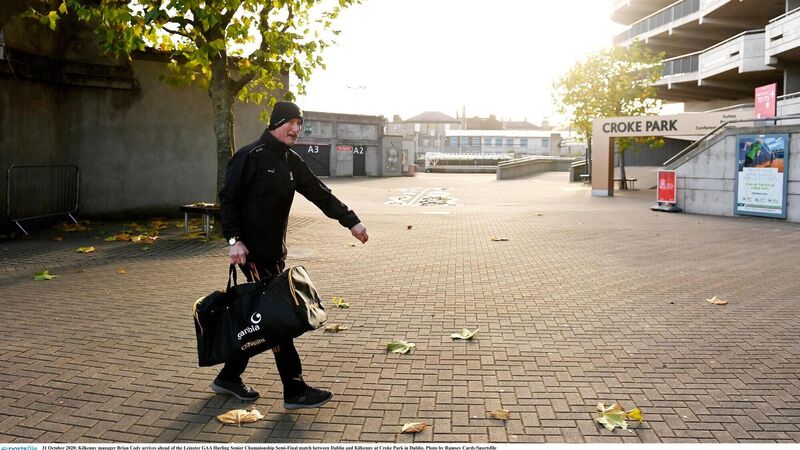Enda McEvoy: Victory tonight would constitute one of Brian Cody’s most satisfying successes

Kilkenny manager Brian Cody arriving at Croke Park for the Leinster SHC semi-final against Dublin. ‘They needed to show they were capable of finding the net again and they needed to show they were capable of intellectualising an imaginative, expansive attacking game again. They managed the one but not t’other,’ writes our columnist. Picture: Ramsey Cardy/Sportsfile
Moments before half-time at Páirc Uí Chaoimh a fortnight ago Limerick scored a point so apparently straightforward but in fact so finely wrought that it cried out to be shown to every coach at every level, from U12 upwards, in the land.
It also cried out to be shown on permanent loop to Brian Cody and his backroom team until their retinas burn.








